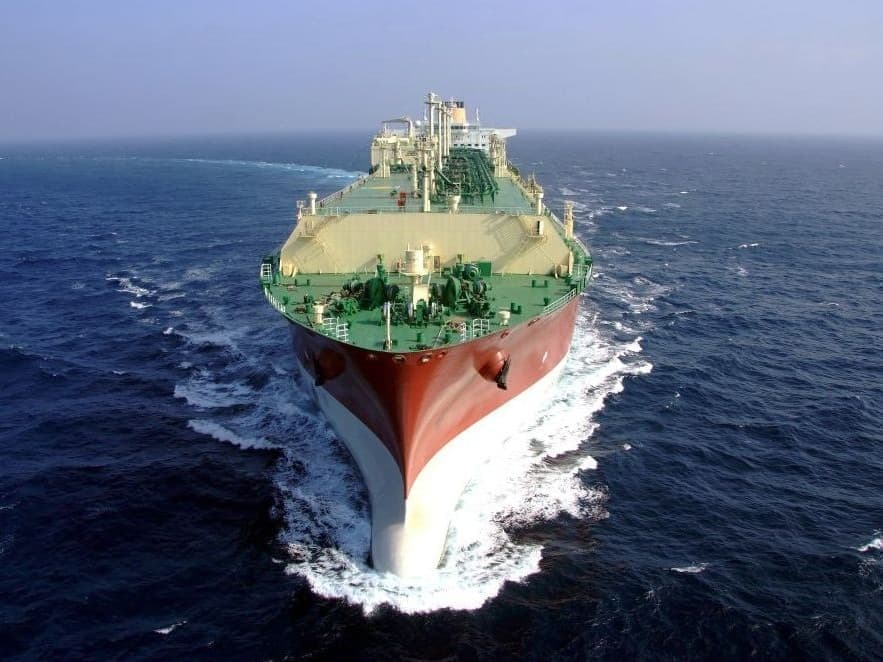
China and Asia are winning the bidding war for natural gas supplies as the northern hemisphere goes into the winter season with woefully low inventories and recovering demand after the pandemic.
Just as natural gas prices surged to records in Europe and Asia, commodity-hungry China secured this week a major long-term liquefied natural gas (LNG) supply deal with top exporter Qatar.
China is looking to secure additional volumes of long-term supply of gas while it is also bidding up LNG spot cargoes, together with wider Asia, leaving Europe with fewer spot supply and further exacerbating the European gas crisis.
Chinese authorities are reportedly ordering state energy enterprises to secure supply for the winter “at all costs,” which, analysts say, will further drive up demand for natural gas and coal this winter.
And as soon as January, China will have more LNG volumes available under a long-term 15-year deal with Qatar Petroleum.
This week, Qatar Petroleum and a subsidiary of China National Offshore Oil Corporation (CNOOC) reached a long-term agreement under which Qatar will supply 3.5 million tons per year of LNG over a 15-year period starting January 2022.
Since Qatar started exporting LNG to China, the Gulf nation gas delivered 715 LNG cargoes to China, of which 270 cargoes (more than 24 million tons of LNG) were delivered to CNOOC.?
This week’s deal is the second major long-term LNG supply agreement between Qatar and a Chinese energy giant.
In March, Qatar Petroleum signed a ten-year LNG supply deal with Chinese giant Sinopec. The Gulf country will supply China Petroleum & Chemical Corporation, or Sinopec, with 2 million tons per year of LNG, starting in January 2022.
Despite the long-term deals with Qatar, China still needs a lot of LNG this winter as its economy recovers from the pandemic, and its energy emission targets have led to more gas use at the expense of coal.
This year, very low gas inventory levels in Europe and low stockpiles in Asia after the unusually cold and long 2020/2021 winter—coupled with economies rebounding from COVID restrictions—are pushing gas demand high ahead of the heating season. Gas markets are tight all over the world, creating a ripple effect on the other energy commodities, coal, and crude oil.
Europe’s natural gas and power prices surged again to fresh record highs on Thursday amid concerns about low supply and forecasts of lower than normal temperatures in the UK.
The gas crisis in Europe is pushing Asian spot LNG prices up, but Asia is winning the bidding war so far because buyers prefer to ship LNG to Asia where the price of gas per million British thermal units is higher than the equivalent prices in Europe.
“They have more purchasing power now,” an LNG broker told the Financial Times, referring to LNG buyers in Asia. “Europe has pipeline supplies and China and Japan don’t have alternatives,” the broker added.
“Significant growth in gas demand post-COVID-19 in both North Asia and Europe has created competition for LNG cargoes, particularly from the US and Qatar, pushing up gas spot prices to record levels for this time of the year,” Australia-based energy advisory firm EnergyQuest said in a note on Thursday.
Spot prices of LNG in Asia have just surpassed not only the records for this time of the year but the all-time high from last January. On Thursday, Asian spot LNG prices jumped to the highest on record, at $34.47 per million British thermal units (mmBtu), as assessed by S&P Global Platts. Thursday’s price broke the $32.50/mmBtu record from January 2021.
According to Citigroup, LNG prices could spike to as high as $100/MMBtu if particularly frigid winter weather combines with the tight markets that have sent natural gas prices surging.
“Strong demand and a lack of supply response have sharply tightened the market. Any surprise demand surge or supply disruptions could propel price further upward,” the investment bank said in a note last week.
Even at record spot LNG prices, China is set to buy more, as per the directive from authorities to ensure supply “at all costs” and avoid further blackouts and a looming slowdown in economic growth as factories close.
The Chinese order for securing supply “suggests that already very elevated LNG and thermal coal prices could be further bid up by Chinese buying,” ING strategists Warren Patterson and Wenyu Yao said on Friday.
“If we do see strong Chinese buying, it will put further pressure on the European natural gas market,” they noted.





























